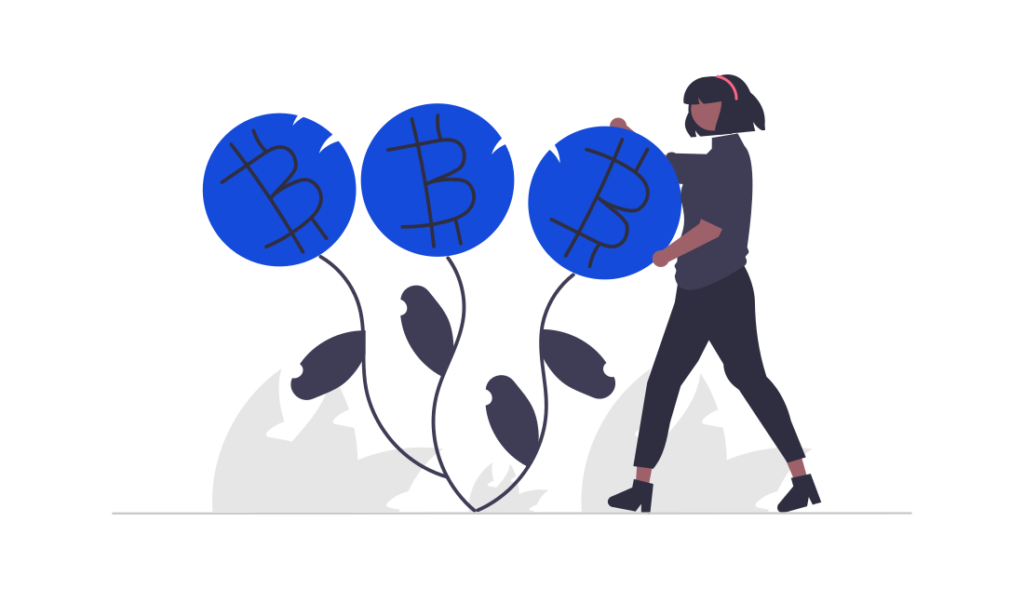Non-fungible tokens (NFTs) are, in theory, a way for someone to definitively own a digital asset. This could be something like an image, video, or music file and evidence of ownership is stored in the blockchain.
In layman’s terms, the blockchain is a public, decentralised ledger of ownership. It contains data referring to individual transactions and a timestamp of when it was made.

If you’re a business owner and you’ve heard about NFTs, you may have been told that they can make you money. You might be ahead of the curve and believe they’re the future of your business.
However, the place of NFTs in the financial landscape of the future is still very uncertain. There is much to consider when deciding whether to incorporate NFTs into your business strategy.
Here are some key areas of concern to consider when deciding whether to take the plunge into NFTs.
Read Now: What are NFTs and Should You Invest in Them?
There Is No NFT ‘Bubble’
At the moment, the blockchain is a solution is search of a problem.
We’re in a pivotal stage in which investors and developers are exploring the potential of the blockchain, trying to create ‘something from nothing’.
NFTs have become popular thanks to news outlets latching onto lucrative deals involving them, such as the founder of Twitter’s sale of the first ever tweet.
There’s just one problem: these huge sales often involve people with a vested interest in making ‘the blockchain’ stick.
Consider the sale of ‘Everyday: The First 5000 Days’, an NFT by the artist Beeple which went for $69.3 million. One position is that this is the natural progression of rich people spending high prices for artwork, accelerated by the COVID-19 pandemic.
However, this optimistic viewpoint doesn’t stand up to scrutiny. The buyer of ‘Everyday’ was Vignesh Sundaresan, a self-described ‘angel investor in blockchain technology’.

Some NFTs are sold to anonymous buyers. CryptoPunk 3100, part of a series, was sold for $7.58 million. At the time of writing, the owner is listing it for sale for $117.31 million, with no bids.
Perhaps we should be concerned about the owner’s motivations.
Are they just another investor, trying to make NFTs stick? Have they bought their own NFT to create the illusion of value in their own work? Are they using a large, anonymous sale as an opportunity to launder money?
As a business owner investigating NFTs, you need to understand that the lucrative sales you hear about are there to drive interest in NFTs. They don’t indicate it.
There’s no guarantee that your legitimate business will be able to replicate these successes.
Read Now: 5 Common Cryptocurrency Scams Investors Should Look Out For
Nobody Knows How NFTs Work
People who miss this crucial point often embark on their own NFT ventures, driven only by money.
Created in 2014, but only becoming known during the pandemic, NFTs are effectively brand-new technology seldom understood by those looking to enter the bubble.
It’s important to know that the blockchain, as a ledger of ownership, isn’t legally enforceable as a result of being decentralised.
The idea that the content of an NFT can’t be copied by others has quickly crumbled. Most NFTs contain metadata – details of the work, and a link to the content, where it can often can be copied.

Lee Azzarello, a blockchain expert, provides a more in-depth explanation. Using the art analogy, he describes NFTs as offering ‘directions to the museum.’
The ‘proof’ of ownership is why people would buy an NFT from you. As you now know, this ‘proof’ can be unreliable, only indicating a piece of code. Does this code itself have value as an asset?
As more people come to understand the drawbacks of NFTs, you should consider whether NFTs will be able to work as part of your business strategy long-term.
Read Now: 5 Important Cryptocurrencies to Look Out for Besides Bitcoin
NFTs Promote Scarcity
The whole premise of NFTs is that they are unique, and can only be sold once. Businesses rely on repeat purchases, whereas NFTs, like real artwork, seek to make a lump sum.
A now infamous thought experiment is the idea that Nintendo, one of the best known video game companies in the world, could make the playable characters in their popular Mario Kart series NFTs.
The logic is that the money made off of these characters would be tremendous because the characters are so ubiquitous. If only one player in the world could play as Mario, Luigi, or Peach, you would have multiple lucrative bidding wars between people wanting that privilege.
If you were Nintendo, you might think this is working well. Except now nobody wants to buy your product, because they can’t play as their favourite character.
You could end up with no long-term revenue stream or profit margin.
You also have to keep investing money into the product’s development, because anybody who does buy it needs a character to use. But the recognisable ones are taken, and the bulk of your customers who aren’t wealthy enough to buy Mario (Mario can be sold again by his owner, remember) won’t feel valued if all they can use is an anonymous character.
In this way, NFTs weren’t designed to be products in the most conventional, lucrative sense.

Imagine you have a flagship digital product minted as an NFT and it could only be bought once. Without the backing of a reputation surrounding the product, how could you set a high price and expect a buyer to meet it?
Larger businesses might be correct that their brands have the potential to attract wealthy customers looking to buy NFTs. But this might be a poor business strategy long term, without the potential for repeat sales and long-term growth.
The Bottom Line
At the time of writing, NFTs have shifted from being an exciting new concept hawked by investors to a confusing one pushed onto consumers. In the few industries where they have stuck, product-creation seems to be forced for the sake of progress, rather than to add value.
Before you make the decision to integrate them into your business strategy, you need to consider whether they are a sound investment considering their unclear future.
Unfortunately, we’ve only scratched the surface of why NFTs are difficult to implement into business strategies. There are ethical considerations, too – the decentralised nature of the blockchain makes them horrible for the environment.
No matter what decision you make, ensure that you conduct thorough research, and seek professional insight into how NFTs would affect your business.
Related Articles
- What are NFTs and Should You Invest in Them?
- 5 Important Cryptocurrencies to Look Out for Besides Bitcoin
- The Benefits and Drawbacks of Socially Responsible Investing
- 5 Common Cryptocurrency Scams Investors Should Look Out For
Count can help you make the best decisions for your finances. Contact us today.